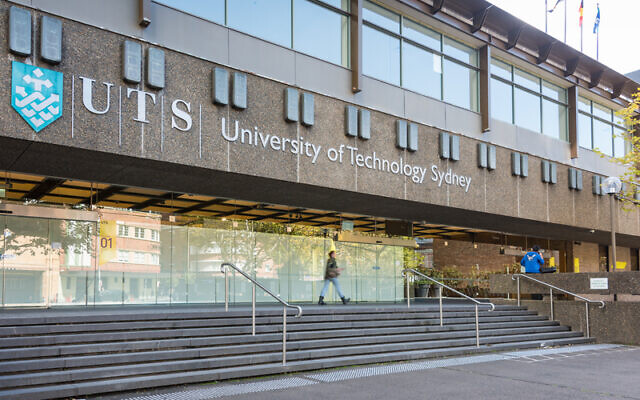UTS student club ‘weaponised Jewish history’
AUJS filed an official complaint after the Students for Humanity club shared Instagram and Facebook stories calling Zionism “inherently antisemitic”.
A STUDENT club at the University of Technology, Sydney (UTS) “weaponised Jewish history for their own political agenda” with a series of social media posts, the Australasian Union of Jewish Students (AUJS) says.
AUJS filed an official complaint after the Students for Humanity club shared Instagram and Facebook stories calling Zionism “inherently antisemitic” and accusing “Zionist mercenaries” of planting bombs in Jewish buildings in Baghdad in the early 1950s in order to convince the local Jewish population to leave for Israel.
“These same tactics were used later on in the ’50s against Jews in Egypt by the Israeli state,” the posts, which originated on the Twitter account of a self-described “rapper, poet and writer” called Dialectics For Liberation, said.
“When they got to Israel they were placed into camps and sprayed with DDT, faced discrimination and had to protest in order to gain adequate housing … Zionism = anti-Semitism”.
“The club’s post was filled with historical revisionism, hurtful accusations and antisemitic tropes. To accuse the Jewish community of antisemitism is an incredible example of mental gymnastics and [UTS] must take action,” said AUJS public affairs coordinator Daniel Elberg.
The committee of Yallah, an organisation dedicated to remembering the narrative of Jews from Arab lands and Iran and celebrating Mizrachi/Sephardi heritage, said, “It is deplorable that the UTS Students for Humanity society have denied our history and persecution in order to weaponise it for their political agenda.”
UTS’ Clubs Code of Conduct requires clubs to “treat others fairly and with respect, and not harass, victimise or discriminate against members, students or others … on the grounds of race, colour, ethnic or ethno-religious background, descent or national identity”.
In the complaint sent on Tuesday by AUJS UTS president Lir Adani and Elberg to ActivateUTS, the umbrella organisation for clubs and social activities at the university, they said Students for Humanity is “in direct violation of this principle”.
As Zionism plays a crucial part in the identity of most Jews, they said, “To accuse the vast majority of Jewish people of being antisemitic is profoundly offensive and defamatory.”
They also said the posts seek to erase the Farhud – a horrific episode that saw more than 150 Jews murdered, 600 injured and countless Jewish women raped – from Iraqi Jewish history.
It further notes that referring to Mizrachi and Sephardi Jews as “Arab Jews” when in reality they were never accepted by the Arab population, “shows that they have not done research … and do not truly care about the persecution that Mizrahi Jews have faced”.
“If Students for Humanity is attempting to advocate against antisemitism … the only thing that they succeeded in doing is rewriting, erasing and undermining our history,” Yallah said in the complaint.
“Yallah and AUJS strongly suggest Students for Humanity tour the [Sydney] Jewish Museum exhibition Jews from Islamic Lands to better develop a sound understanding of our history before promoting material or attempting to speak on behalf of Iraqi Jews.”
NSW Jewish Board of Deputies president Lesli Berger said the irony of “Students for Humanity” accusing Zionism of being antisemitic and Israel of engaging in ethnic cleansing “is clearly lost on the students themselves”.
“These posts are patently false and profoundly offensive, and we call on the UTS authorities to enforce their own Code of Conduct to ensure that the students involved are appropriately disciplined.”
The AJN understands it can take up to 14 days for ActivateUTS to respond to the complaint. A comment was sought but not received by press time.
More than 800,000 Mizrachi and Sephardi Jews, whose families had lived in the region for centuries, fled or were driven out of Arab lands, north Africa and Iran in the mid-20th century.


comments